A Filmmaker's Biography: Hunter S Thompson
18-07-37 to 20-02-2005
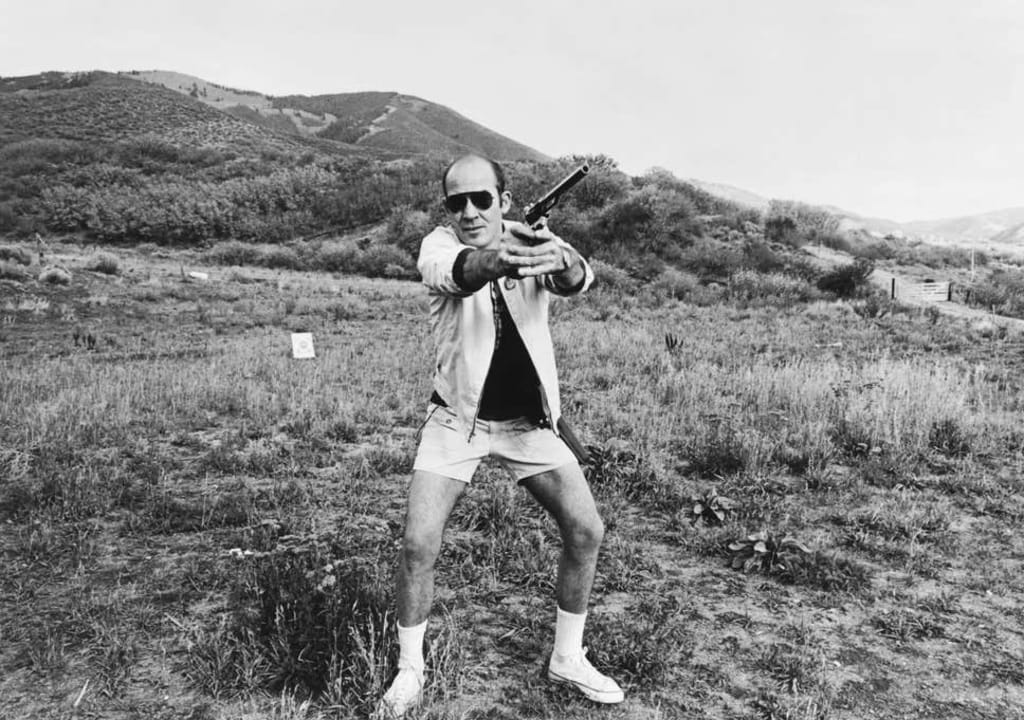
We don't only concentrate on films and literature here, but we also have a look at cultural phenomenons in the worlds of everything from journalism and literature to our friend, cinema and its brother - cultural movements. Hunter S Thompson has many attributes to make him a focal point of everyone that studies cinema, literature, journalism, art and even culture and American Studies. One thing about Hunter S Thompson we always look at though is the invention of Gonzo Journalism.
This is the exact definition of Gonzo Journalism:
"A style of journalism that is written without claims of objectivity, often including the reporter as part of the story via a first-person narrative."
This basically means that the piece will be written as a first person subjective story rather than a third person objective report.
One thing you can see here is how it actually goes completely against the initial rules of journalism. This is part of what makes Thompson a cultural phenomenon. He pretty much breaks the rules of his initial cause and turns it on its head so that it is written the exact opposite way. Heightening on storytelling and entertainment technique with the possible hopes of gaining a wider audience with a better emotional connection.
Biography
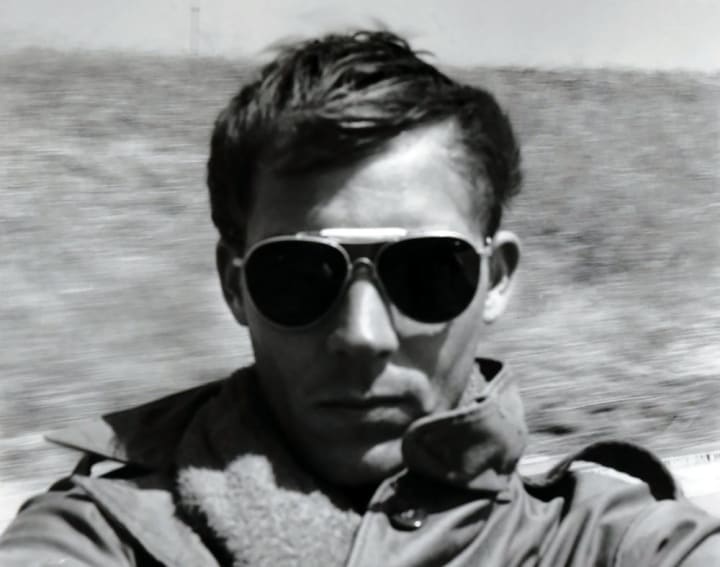
Born into a middle class family in Kentucky, Hunter S Thompson was the first of three sons of a Head Librarian and a World War 1 Veteran. When Hunter S Thompson was 14, his father died from a neuromuscular disease. This is also when Hunter's mother apparently became a heavy drinker.
Hunter began playing sports at a young age in school and then, prepared for high school sports in a specialist athletic club. But, he never actually joined any sports clubs once he went to high school.
In high school, he was accepted into the school's literary association (which had been around since the 1860s). It was normally for upper class families but they made an exception for Hunter's entry. During this time, Hunter became a contributor to the school's yearbook but the club ejected him in 1955 because of some problems. These problems were legal and in 1955, for robbery, Hunter served time in jail. When he was released, he enlisted in the US Army.
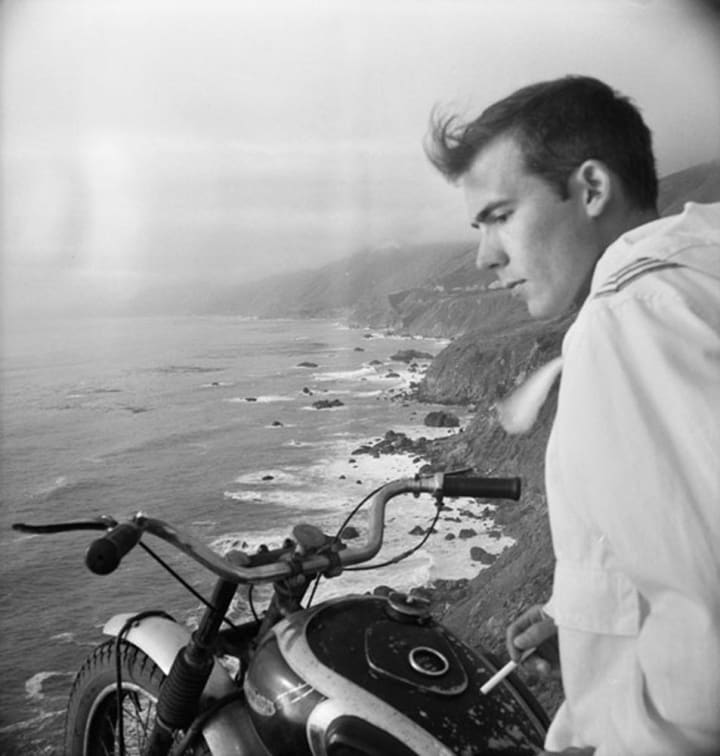
He completed his training in San Antonio, Texas and transferred to Illinois - he there applied to be an aviator but in 1956, his application was rejected. He transferred to a base near Florida and then began to take classes at the university as well as serve in the army. He landed his first job as a journalist for the sports in the paper "The Command Courier" by lying about his experience. In 1957, he wrote a column for the "Playground News" although because of his enlistment, his name couldn't appear on the column.
He was given honourable discharge in 1957, his senior noted that his rebellious attitude sometimes rubbed off on to other people.
During his early career he worked in Jersey Shore, Pennsylvania. He worked at Columbia University and TIME Magazine as a copy boy, not being paid that much money at all. Whilst at work, he copied out "The Great Gatsby" on a typewriter as well as "A Farewell to Arms". Be that as it may, that is not what he was supposed to be doing and sooner or later he was fired from TIME for insubordination - it turns out he was trying to learn the writing styles. He moved to working for the Middleton Daily Record in New York and was fired for a heated argument with a colleague.
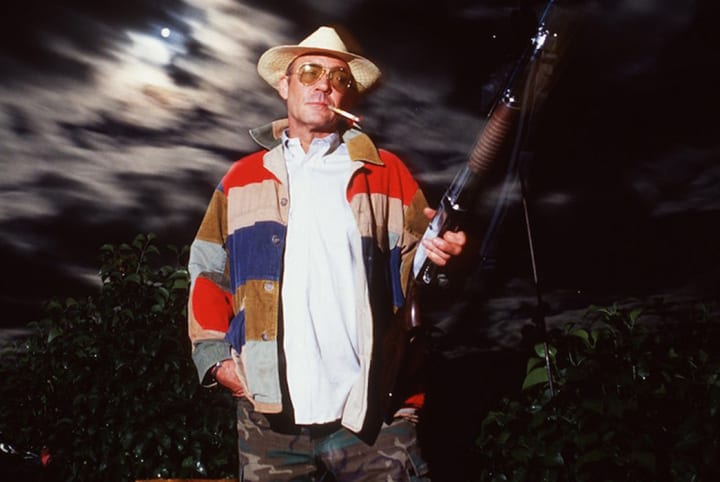
He tried working with the San Juan Star, the Puerto Rican Paper, but the manager declined him since he didn't speak that much of the language. He went to work for the New York Herald Tribune - he hitchhiked along the highway 40 to work as a caretaker at States Hot Springs. This was during the year of 1961. He then published an article in a paper on the bohemian culture of Big Sur. It was during this time that he also wrote "The Rum Diary".
From 1962 to 1963, he traveled down South America and worked for the National Observer. He spent time reporting for the Brazil Herald in Brazil and he also then married his girlfriend upon returning to the states. They lived in Colorado and then had a child named Juan - they would divorce in 1980.
Whilst he was working for the National Observer, he wrote about his trip to Idaho to investigate the suicide of Ernest Hemingway in 1964. Whilst there, he stole some elk antlers from Hemingway's home and then severed his ties with the National Observer when he refused to publish a work by Tom Wolfe. He then moved to San Francisco and immersed himself in drug culture. He began working for a paper called Spider.
In 1965, Hunter S Thompson was hired to write a story about the motorcycle club, Hell's Angels. After the article was published, he received several book offers and spent the following year living with the club. When they found out that they were being exploited for monetary gain, the Hell's Angels severed their ties with Thompson and demanded they got some of the profits from the writings. Needless to say, when he said that he wouldn't share the profits, the Hell's Angels gave him a savage beating.
Random House ended up publishing the book "Hell's Angels" by Hunter S Thompson and it got some very favourable reviews for its new journalistic style.
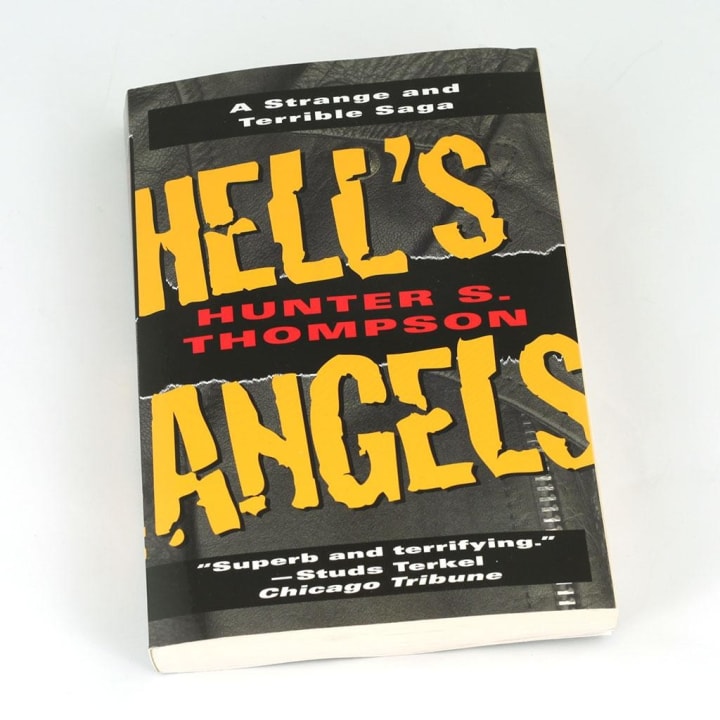
Hunter S Thompson then began working for the bigger papers and magazines such as Esquire and the New York Times. In 1967, he criticised the hippie movement and the beatniks stating that their lifestyle was a getaway from reality. After this, he moved back to Colorado with his family and he was served with $15K in royalties for "Hell's Angels", this was a downpayment but that house in Colorado would be the house he would live in for the rest of his life. Compared to the payment that was not much, the house would go on to be valued at quite a bit because Thompson lived there for so long.
Thompson started protesting against the Vietnam War in 1968 and paid for a hotel room in Chicago where he would watch from his window as the police fought the public. This had a massive impact on his books in the later parts of his career. His career was reignited in 1972 by the book that Random House published, "Fear and Loathing in Las Vegas".
By this time, Thompson was a very famous writer and journalist, beginning to establish his Gonzo Journalism which also received its fair share of praise in the progressive era. But it all went downhill after that.
Whilst in Africa, he covered the fight "Rumble in the Jungle" - well, he was meant to if he didn't miss his flight because he was drunk. The book deal for the next presidential campaign was cancelled without informing Thompson and plans were made for him to travel to Vietnam. Again, Thompson got there late whilst other journalists were leaving the country. This made Thompson's relationship with Rolling Stone strained. After this, the Gonzo Papers were published in the 1970s. After this, Thompson became far more reclusive in the 1980s.
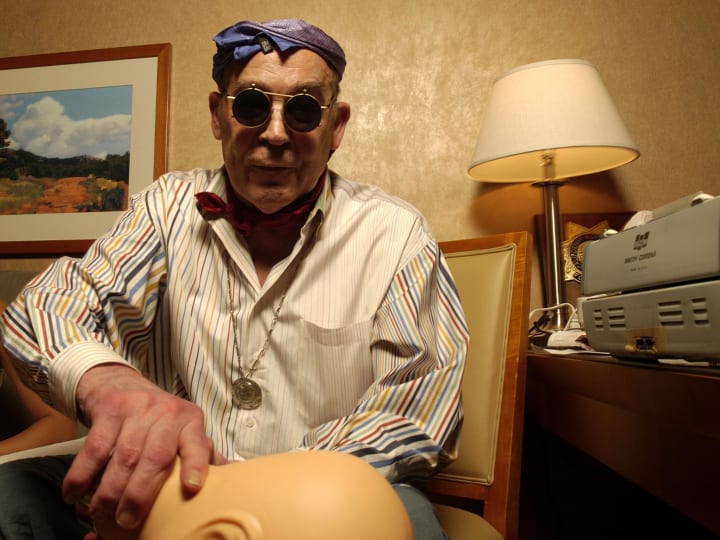
From then on, he was sporadically publishing in Rolling Stone from the 80s until 2004. He published his last in Rolling Stone which was based on the 2004 campaign trail.
Thompson got remarried in 2003 but then didn't really catch up his journalism again. He pretty much suffered from depression and drug abuse for the vast majority of his life and, 5:42pm on the 20th of February, 2005 - he died of a self-inflicted gunshot wound to the head.
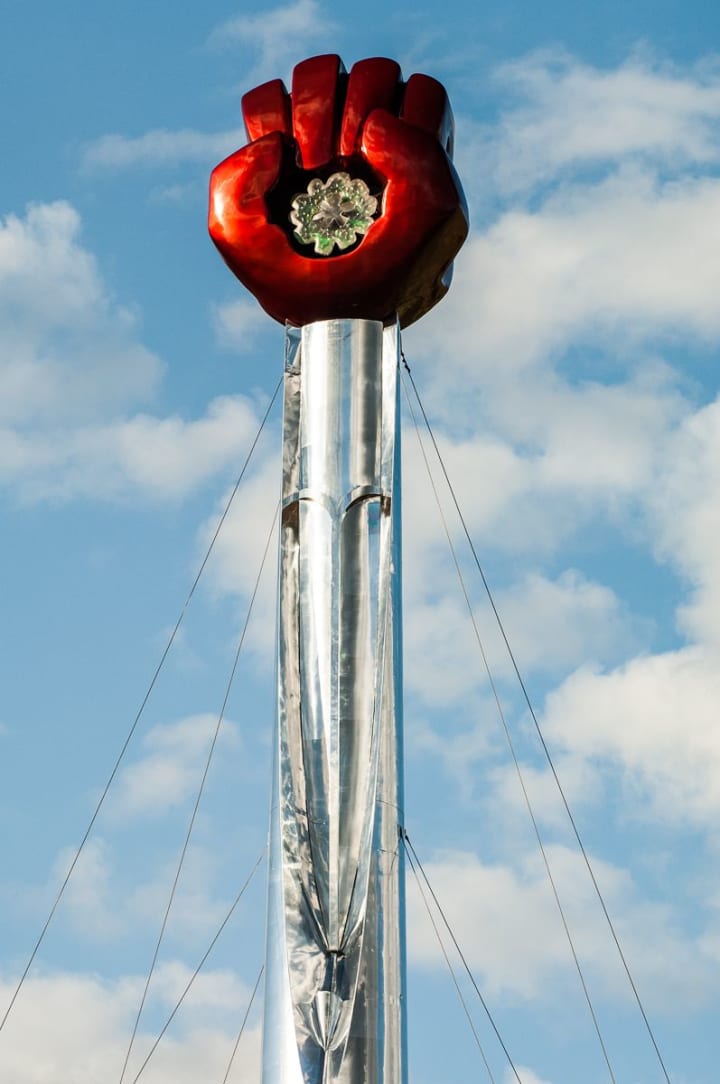
Rolling Stone published what was considered to be his suicide note, addressed to his wife:
No More Games. No More Bombs. No More Walking. No More Fun. No More Swimming. 67. That is 17 years past 50. 17 more than I needed or wanted. Boring. I am always bitchy. No Fun — for anybody. 67. You are getting Greedy. Act your age. Relax — This won't hurt.
His ashes were fired from a canon to the sound of Bob Dylan's "Mr. Tambourine Man". It was a private funeral on the 20th of August, 2005. The funeral was funded by the American Actor, Johnny Depp - a good friend of Thompson. Jack Nicholson, Bill Murray and Benicio Del Toro attended the funeral.
About the Creator
Annie Kapur
200K+ Reads on Vocal.
English Lecturer
🎓Literature & Writing (B.A)
🎓Film & Writing (M.A)
🎓Secondary English Education (PgDipEd) (QTS)
📍Birmingham, UK




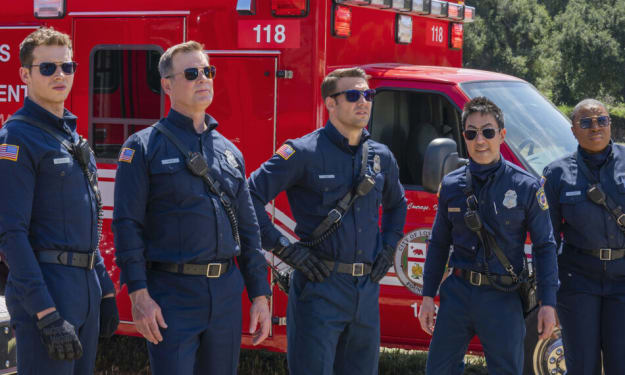

Comments
There are no comments for this story
Be the first to respond and start the conversation.